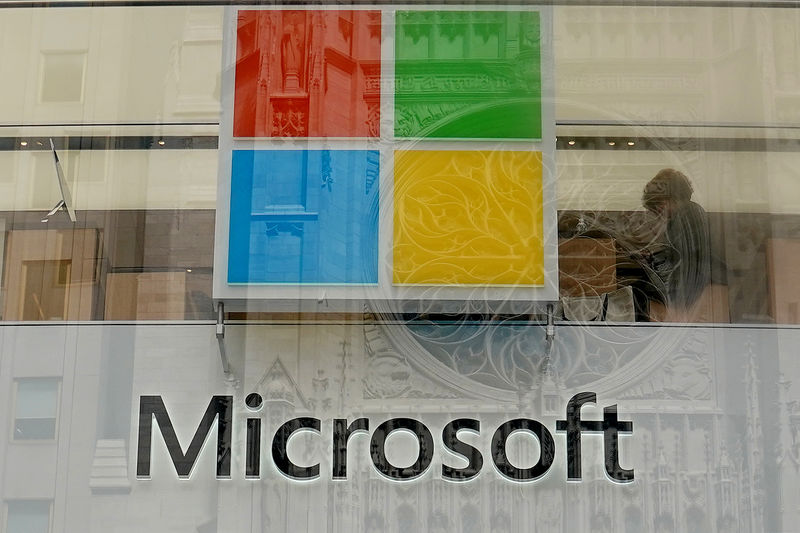Investing
Tech-sponsored study criticises plan to exclude non-EU cloud vendors

© Reuters. FILE PHOTO: European Union flags fly outside the European Commission headquarters in Brussels, Belgium, March 1, 2023.REUTERS/Johanna Geron
By Foo Yun Chee
BRUSSELS (Reuters) – A proposed European Union cloud security label that could exclude Amazon (NASDAQ:), Alphabet (NASDAQ:)’s Google, Microsoft (NASDAQ:) and other non-EU cloud services providers from the bloc is discriminatory and could lead to retaliatory measures, a study commissioned by a tech lobbying group said.
The European Centre for International Political Economy (ECIPE) report, which was commissioned by the Computer and Communications Industry Association (CCIA), underscores growing private concerns about the draft label plan among U.S. tech giants, which have so far not made any public comment on it.
At issue is a provision in EU cybersecurity agency ENISA’s certification scheme (EUCS) that requires cloud services providers to have their registered head office and global headquarters in the EU and to operate cloud services and store and process customer data in the 27-member bloc.
“I think the political intention is to squeeze out foreign suppliers but it will of course have also ramifications for EU businesses that are more or less relying on cloud computing services,” ECIPE Director Matthias Bauer told Reuters.
“Member states should now call on the cybersecurity agency and also the European Commission to abandon politically motivated EUCS immunity requirements,” he added.
ENISA is waiting for an opinion from EU countries, a spokesperson said and “will then finalise the scheme by taking into utmost account this opinion and submit the final candidate scheme to the European Commission”.
The EU executive declined to comment on the ECIPE report.
“The scheme should be fully in line with EU law, as well as with the EU’s international commitments, including on trade,” a Commission spokesperson said.
ECIPE said the proposal could set a dangerous precedent for any data-intensive sector, that could see the cybersecurity label become mandatory for new technologies such as internet connected devices in energy, healthcare and autonomous driving.
A ban could also trigger retaliatory measures by EU trading partners, the think tank said.
Read the full article here

-

 Side Hustles5 days ago
Side Hustles5 days agoKickstart Your Year With These Entrepreneurial Health Checkups
-

 Side Hustles4 days ago
Side Hustles4 days agoExpand Your Global Reach with Access to More Than 150 Languages for Life
-

 Side Hustles3 days ago
Side Hustles3 days agoKFC Announces Saucy, a Chicken Tenders-Focused Spinoff
-

 Investing4 days ago
Investing4 days agoPalantir, Anduril join forces with tech groups to bid for Pentagon contracts, FT reports By Reuters
-

 Side Hustles4 days ago
Side Hustles4 days agoThis AI is the Key to Unlocking Explosive Sales Growth in 2025
-

 Side Hustles2 days ago
Side Hustles2 days ago4 Ways Content Can Make or Break the Customer Experience
-

 Passive Income6 days ago
Passive Income6 days ago5 Key Success Factors of Thriving Entrepreneurs
-

 Passive Income5 days ago
Passive Income5 days agoHow to Motivate, Inspire and Energize Your Employees


















